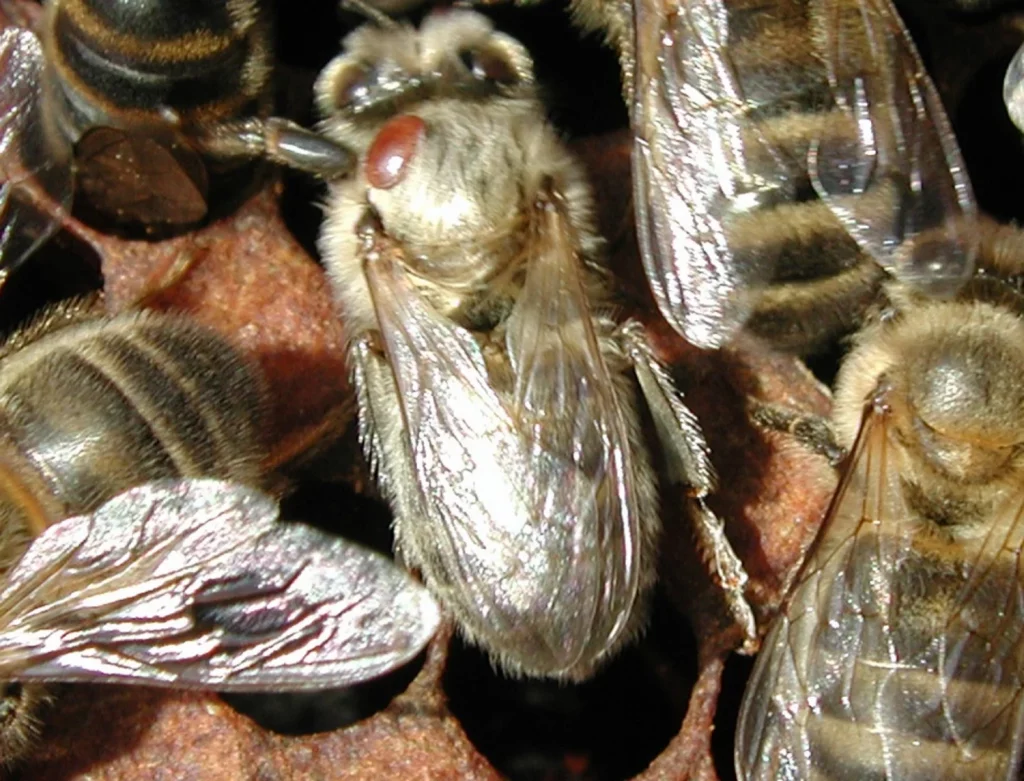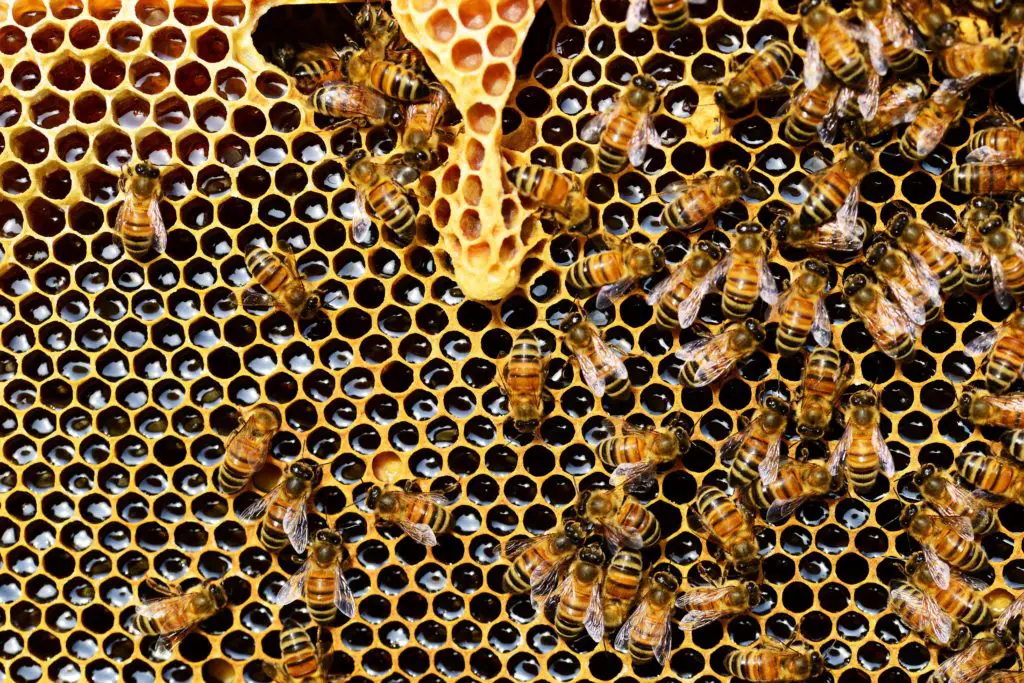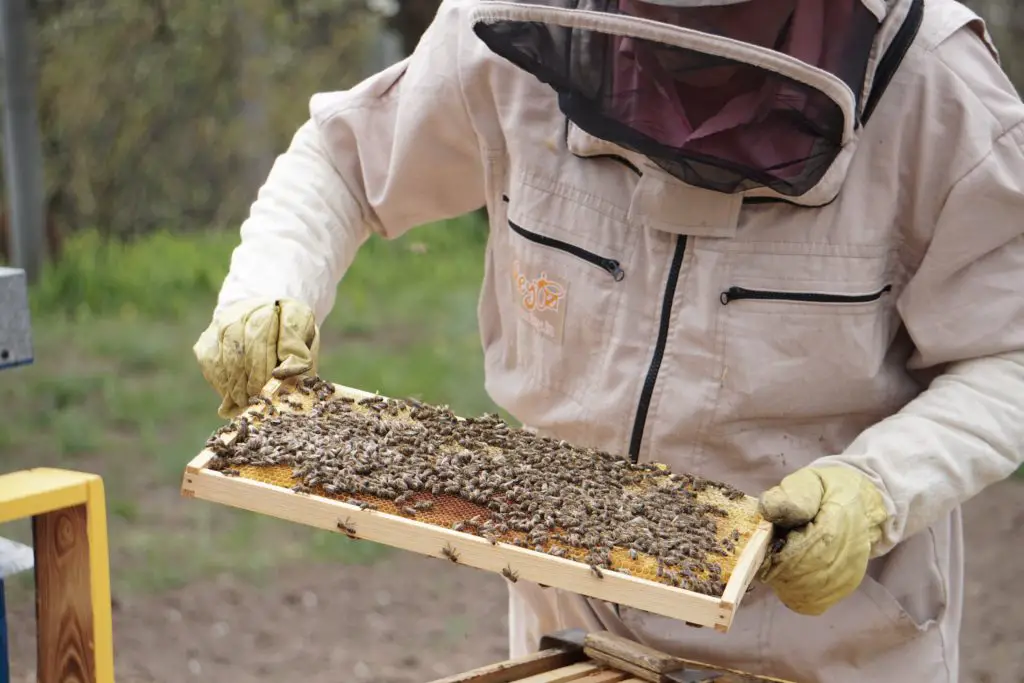Affiliate Disclaimer - As an Amazon Associate I earn from qualifying purchases.
It supports the website. So, Thank you
Rabies is a serious illness that affects the nerves and brain and in most cases, it is fatal. If you’re working with animals in any capacity, this is one of the conditions that you may live in fear of. But for beekeepers, the question that hangs in the air is can bees get rabies?
Fortunately, bees cannot get rabies since this is a condition that only affects mammals. While it is possible for bees to carry other diseases, none of these is a risk to humans.
That said, if you are stung by a bee, you may experience complications. For example, some people have an allergic reaction to bee venom. In this guide, we’ll explain everything you need to know about bees and rabies and the potential risks of being stung by a bee.
Table of Contents
What Is Rabies?
Rabies is a very serious infection that affects the nerves and the brain and is usually transmitted through a cut, scratch or bite from an animal. The most common cause of rabies in humans is through contact with a rabid dog. That said, there are many other animals that can carry the disease including racoons, bats, foxes, cats, mongooses and many others.
For the most part, rabies will result in death. However, if you have been scratched or bitten by a rabid animal then you can seek treatment before symptoms appear and this is relatively successful. Symptoms of rabies include, but are not limited to the following:
- Headache
- Fever
- Feeling anxious
- Hallucinations
- Aggression or confusion
- Difficult breathing
- Muscle spasms
- Paralysis
- Death
There are vaccinations for people who may be at risk of rabies and it is advisable to take these when travelling to a part of the world where rabies is a problem such as South America, Africa and parts of Asia.
Do Bees Carry Rabies?
Rabies is a nasty disease and not something that anyone would want to contract. However, if you are in close contact with bees, this isn’t something you are going to need to worry about.
Bees are not affected by rabies as this is a mammalian disease; only mammals are affected by it. Other animals that do not carry rabies include lizards, birds and fish. If you are stung by a bee, you may have a reaction to it but it definitely won’t be related to rabies.
Common Problems And Reactions To Bee Stings
While there isn’t a risk of contracting rabies if you are stung by a bee, there are some unwanted side effects that you might experience. For most of us, a bee sting will be nothing more than a painful, sharp feeling, some minor swelling and a bit of tenderness and redness around the sting site.
That said, there are some people who experience a moderate reaction to a bee sting and the symptoms may include things like continued swelling and extreme redness.
For the most unlucky among us, a bee sting can bring on a severe allergic reaction. While most stings won’t require treatment, it’s important to seek medical assistance if you have any of the following symptoms after being stung by a bee:
- Difficult breathing
- Changes to your pulse (becoming more rapid or weaker)
- Swelling in the mouth and throat
- Fainting
- Dizziness
- Nausea and vomiting
- Losing consciousness
What Diseases Do Bees Carry?
Just like any other animal, bees are prone to certain diseases. Let us reiterate once again that rabies is not one of them. If you are stung by a bee, there is no chance of contracting this deadly condition.
However, bees do carry things like sacbrood virus, deformed wing virus and paralysis virus. But these are conditions that only affect bees and will not be transmitted to a human in the event of a bite or sting.
Conclusion
We’ve all heard the horror stories associated with rabies and it’s not a disease that anyone wants to come into contact with. But rabies is something that only affects mammals so it is impossible for a bee to carry it. If you receive a bee sting, you won’t need to worry about being infected. However, some people have an adverse reaction to bee venom and may need to seek medical assistance to help alleviate symptoms.




